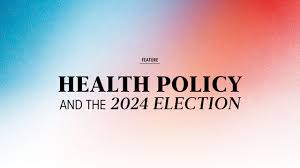The State of Health Insurance Coverage and the 2024 Election in Brazil
The 2024 election in Brazil is set to be one of the most consequential in recent history, with health insurance coverage playing a central role in political discourse. Brazil’s healthcare system is a complex blend of public and private sectors, with the public Sistema Único de Saúde (SUS) offering free healthcare to all citizens, while a growing number of Brazilians opt for private health insurance to avoid the long waits and perceived inefficiencies of SUS. As political parties shape their platforms ahead of the election, health insurance coverage has emerged as a key issue, with candidates proposing various reforms to address the rising costs, access challenges, and overall sustainability of the healthcare system.
In this article, we will explore the current state of health insurance coverage in Brazil, the role of the public and private sectors, the key challenges facing the healthcare system, and how the 2024 election could impact the future of health insurance in the country.
Brazil’s Healthcare Landscape: Public vs. Private
Brazil’s healthcare system is defined by a dual structure of public and private sectors. The Sistema Único de Saúde (SUS) is the government-funded public healthcare system, established in 1988 following the country’s constitution, which guarantees healthcare as a universal right. SUS provides free healthcare to all Brazilian citizens and residents, regardless of income or employment status. It covers everything from primary care and hospital services to advanced treatments like organ transplants.
However, despite the comprehensiveness of SUS, the system faces significant challenges. Many Brazilians experience long wait times for services, particularly for specialized care and surgeries. Additionally, the quality of care can vary depending on the region, with rural areas often lacking the same level of healthcare infrastructure as urban centers. As a result, nearly 25% of Brazilians opt for private health insurance to supplement or replace their reliance on SUS.
Private Health Insurance in Brazil covers a wide range of services, including consultations, diagnostic tests, hospitalizations, and surgeries. While private insurance offers quicker access to care and generally better-quality services, it is not affordable for everyone. Premiums can be expensive, and access to private health insurance is often tied to employment, leaving many unemployed or informal workers without coverage. The private sector is regulated by the National Supplementary Health Agency (ANS), which oversees health insurance plans and ensures compliance with government regulations.
Challenges Facing Brazil’s Healthcare System
Several key challenges currently define the state of healthcare and health insurance coverage in Brazil. These issues are expected to be central to the 2024 election, as voters demand solutions to improve access, affordability, and quality of care.
1. Inefficiencies in SUS
While SUS provides free healthcare, it suffers from inefficiencies that have long plagued the system. Long wait times for medical procedures, shortages of specialists in certain regions, and inadequate funding for hospitals and clinics have led to dissatisfaction among Brazilians, particularly in lower-income areas. Many citizens report waiting months for surgeries or specialized treatments, and public hospitals in some regions struggle to meet demand. Despite these challenges, SUS remains a crucial safety net for millions of Brazilians who cannot afford private insurance.
2. Rising Costs of Private Health Insurance
Private health insurance has become increasingly expensive in recent years, with premiums rising at a faster rate than wages for many Brazilians. Inflation, the cost of medical technology, and the growing demand for healthcare services have all contributed to this trend. For single individuals, families, and particularly the elderly, maintaining private health insurance coverage has become financially burdensome. Many Brazilians who previously had private health insurance are dropping their coverage due to rising costs, further increasing pressure on the public SUS system.
3. Access Disparities
While urban centers like São Paulo, Rio de Janeiro, and Brasília offer a wide array of both public and private healthcare services, rural areas and smaller cities often lack the same level of access to medical care. Rural residents face longer travel distances to reach hospitals and often encounter shortages of medical professionals, especially specialists. This access disparity is a key concern heading into the 2024 election, with candidates proposing solutions to address the unequal distribution of healthcare resources across the country.
4. Aging Population
Brazil is experiencing an aging population, with the number of elderly citizens projected to rise significantly in the coming decades. This demographic shift presents unique challenges for the healthcare system, as older individuals typically require more medical care, including chronic disease management and long-term care. The demand for healthcare services is expected to increase, placing further strain on both SUS and private health insurers. The aging population also raises concerns about the sustainability of current healthcare financing models, particularly with regard to the rising costs of private health insurance.
Health Insurance Coverage in the 2024 Election
As the 2024 election approaches, political candidates from various parties are putting forth proposals to address the healthcare challenges facing Brazil. Health insurance reform has emerged as a key policy area, with several central themes dominating the debate.
1. Improving SUS Funding and Efficiency
Several candidates have proposed increasing funding for SUS to improve the quality of care and reduce wait times for medical procedures. This could include investing in hospital infrastructure, hiring more medical professionals, and expanding the availability of specialized care in rural and underserved areas. Improving the efficiency of SUS is seen as a way to reduce the reliance on private health insurance and ensure that all Brazilians have access to high-quality healthcare, regardless of their financial situation.
Some candidates have also suggested reforms to the management and governance of SUS to reduce bureaucratic inefficiencies and ensure that resources are allocated more effectively. Proposals for digitalizing medical records and expanding telemedicine services have also been put forward as ways to improve efficiency and make healthcare more accessible.
2. Regulating Private Health Insurance Costs
The rising cost of private health insurance is a pressing issue for many Brazilians, and several candidates have proposed measures to regulate premium increases and make private insurance more affordable. Some have suggested stricter oversight of private health insurers by the National Supplementary Health Agency (ANS), with a focus on capping annual premium increases and ensuring that insurers provide adequate coverage for essential services.
Other proposals include creating subsidies or tax incentives for individuals and families who purchase private health insurance, particularly for lower-income households. These measures aim to alleviate the financial burden of private insurance and prevent more Brazilians from losing coverage due to rising costs.
3. Expanding Access to Health Insurance
Another key focus in the 2024 election is expanding access to health insurance for individuals who are currently uninsured or underinsured. Several candidates have proposed creating public-private partnerships to offer more affordable health insurance plans, particularly for informal workers and the unemployed. These plans would be designed to bridge the gap between the free services provided by SUS and the more comprehensive (and expensive) private health insurance options.
Some candidates have also advocated for expanding the reach of collective health insurance plans, which are typically offered to employees through their workplaces. By allowing individuals who are not formally employed to join collective plans through professional associations or cooperatives, more Brazilians could access affordable health insurance coverage.
4. Addressing the Needs of an Aging Population
As Brazil’s population continues to age, candidates have put forward proposals to better meet the healthcare needs of elderly citizens. This includes expanding access to long-term care services, improving geriatric care, and ensuring that both SUS and private insurers cover essential services for chronic disease management. Some candidates have also proposed creating specialized health insurance plans for seniors, with coverage tailored to the unique needs of older adults.
The issue of financing long-term care for the elderly has also been raised, with candidates debating whether the government should play a larger role in subsidizing these services or if private insurance should be restructured to accommodate the growing demand.
The Role of Voters in Shaping Healthcare Policy
Health insurance and healthcare reform are among the top concerns for Brazilian voters heading into the 2024 election. With millions of Brazilians relying on both SUS and private health insurance to meet their healthcare needs, voters will be closely examining candidates’ proposals to address the challenges of access, affordability, and quality of care. Public opinion is expected to play a significant role in shaping the political agenda, as candidates seek to align their policies with the priorities of the electorate.
For many Brazilians, the 2024 election represents an opportunity to demand meaningful reforms to the healthcare system and ensure that both public and private sectors can meet the growing demand for medical services. Whether through increasing investment in SUS, regulating private health insurance, or expanding access to coverage, the outcome of the election will have far-reaching implications for the future of health insurance in Brazil.
Conclusion
The 2024 election in Brazil will be pivotal in determining the future of health insurance coverage and healthcare access across the country. As candidates present their proposals for reforming SUS, regulating private insurers, and addressing the needs of an aging population, voters will have a critical role in shaping the direction of healthcare policy. Whether the focus is on improving the public healthcare system, making private insurance more affordable, or expanding access to coverage, the election’s outcome will have lasting implications for millions of Brazilians seeking better healthcare solutions in the years ahead.


